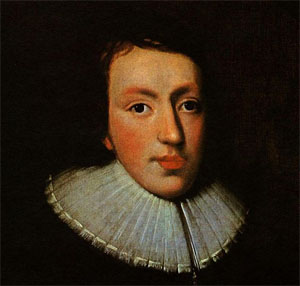Forest Hill
John Milton
To hear the lark begin his flight,
And, singing, startle the dull night,
From his watch-tower in the skies,
Till the dappled dawn doth rise;
Then to come, in spite of sorrow,
And at my window bid good morrow,
Through the sweet-brier or the vine,
Or the twisted eglantine!
While the cock, with lively din,
Scatters the rear of darkness thin;
And to the stack, or the barn-door,
Stoutly struts his dames before:
Oft listening how the hounds and horn
Cheerily rouse the slumbering morn,
From the side of some hoar hill,
Through the high wood echoing shrill:
Some time walking not unseen,
By hedge-row elms on hillocks green,
Right against the eastern gate,
Where the great sun begins his state,
Robed in flames and amber light,
The clouds in thousand liveries dight;
While the ploughman, near at hand,
W'histles o'er the furrowed land,
And the milkmaid singeth blithe,
And the mower whets his scythe,
And every shepherd tells his tale
Under the hawthorn in the dale.
Straight mine eye hath caught new pleasures,
Whilst the landskip round it measures;
Russet lawns, and fallows gray,
Where the nibbling flocks do stray;
Mountains, on whose barren breast
The labouring clouds do often rest!
Meadows trim with daisies pied,
Shallow brooks, and rivers wide:
Towers and battlements it sees
Bosomed high in tufted trees,
Where perhaps some beauty lies,
The cynosure of neighbouring eyes.
The poet John Milton visited Forest Hill in 1643. He spent a few weeks at the manor house there as schoolmaster. While there he met and married the 16-year old Mary Powell. She fled back to her family after just a month and due to the war, she only cam back to him in 1645.
